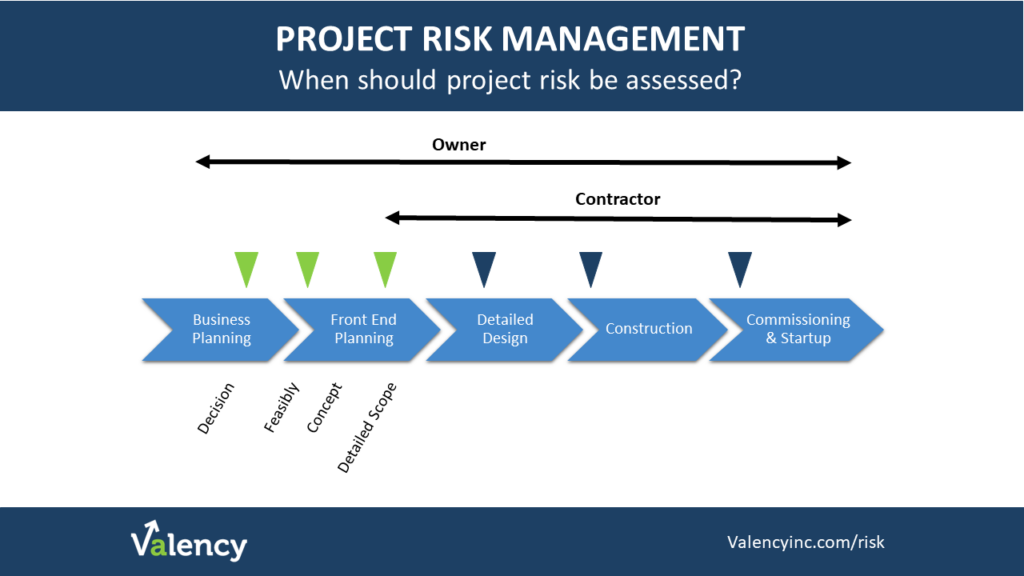When developing a project risk management process, project complexity is the main consideration in determining when to assess project risk.
Regardless of the size or complexity of the project, it’s important to identify risks as early as possible. Early identification of risks may impact concept selection and it is less costly to make changes early in the process. This also allows the project team ample time to develop risk responses.
In large capital projects, the Construction Industry Institute (CII) recommends conducting risk workshops in the early phases of the project lifecycle:
- At the end of Business Planning, prior to your decision to proceed
- During Feasibility
- Prior to completion of Detailed Scope
Our experience is that projects under $10 million normally have a much more compressed front end planning effort. Conducting one risk workshop during front end planning is generally sufficient.
As your project continues into the execution phases, we’d recommend planning a risk workshop early in the detailed design, construction and commissioning phases. During these phases, new risks can arise due to changes in external circumstances and changes resulting from actions taken by the project team.
Obtaining buy-in for project risk workshops
It is important to consider that introducing risk workshops may represent a significant change in process for your project teams. Everyone is pressed for time, so expect to get some push back about ‘yet another meeting’.
These suggestions with help you address objections upfront:
- Leverage statistics on the benefits of a formal risk management process.
- Present a well-organized, short and effective risk workshop structure to ensure an engaging and productive meeting
- Explain that:
- New risks are going to arise as the project transitions through each phase.
- The risk process can become a key element in your team alignment strategy to ensure project stakeholders remain aligned throughout the project.
- Keep the project team thinking proactively about risk.
- Ensure your project manager has full confidence to keep taking decisive action during the execution phases of the project.
If you’re interested in learning more about planning and executing an effective project risk managment strategy, consider Valency’s virtual training course: Project Risk Management Principles & Practices.


